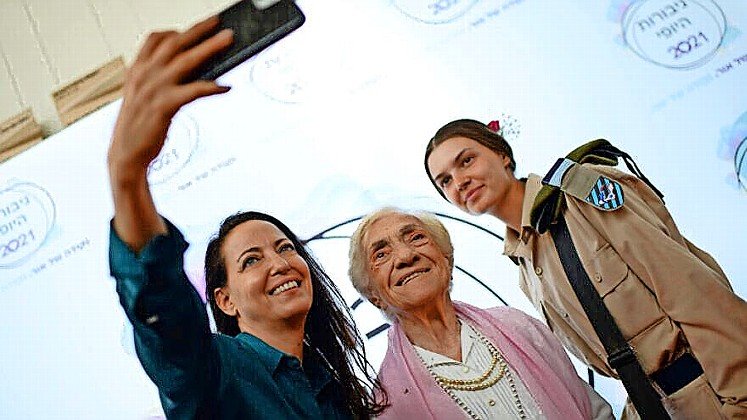Israelis live longer than most, despite health woes
Israelis have a higher-than-average life expectancy than people living in 38 Organization for Economic Co-operation and Development countries, but far fewer doctors, nurses and available hospital beds, accord to an OECD study.
The study looked at data from 2019 before the coronavirus pandemic and was followed by a supplementary analysis by Israel’s Ministry of Health based on the same data.
Specifically, the rate of nurses per 1,000 people is one of the lowest in the OECD (4.7 per 1,000). Only Latvia, Greece and Mexico have fewer nurses per capita, said the report.
Similarly, the rate of doctors per thousand people is about 9% lower than the OECD average (3.3 per 1,000 people). Only 12 countries have fewer doctors per capita, it said.
Moreover, Israel is not graduating enough new medical professionals to fill the void and has the highest percentage of foreign-trained doctors (57.8%) — a 15% higher rate than any other OECD country.
“The fact that we have just a bit fewer practicing physicians per capita masks the underlying need for Israel to rely on old — sometimes, very old — physicians,” Professor Dan Ben-David, a Tel Aviv University economist and founder of the Economist at Shoresh Institution, told JNS. “While the share of physicians who are 75 years old and up averages just 1% in the OECD, it is 10% of the total in Israel.”
The rate of beds for general hospitalization in Israel also remains relatively low compared to other OECD countries (fourth from the bottom at 2.2 beds per 1,000 people), according to the report. The OECD average is 3.5. Additionally, hospital-bed occupancy in Israel is 91% and is among the highest in the OECD.
The rate of MRI devices per million inhabitants in Israel is 5.1, compared to the OECD average of 17. Only in Mexico and Colombia rate lower.
“The paucity of health-care professionals, alongside a lack of vital equipment such as MRI machines and massive congestion in the hospitals that remains at developed-world peaks is indicative of Israel’s chronic neglect of its health-care system over the years,” said Ben-David.
Professor Cyrille Cohen, head of the Immunology lab at Bar-Ilan University in Ramat Gan, said that “unfortunately, because of the lack of resources, we don’t get the health care we deserve, which is unfit for such a developed country as Israel.”
However, the report did point out some positive news. For instance, life expectancy in Israel is higher than the average in OECD countries.
Male life expectancy has risen in recent years and is about two years higher than the average among men in OECD countries (81 versus 78.3). Only seven countries have higher male life expectancies: Switzerland, Iceland, Sweden, Japan, Italy, Norway and Spain.
Females also live longer in Israel — to the age of 84.8 compared to the OECD average of 83.6. The country is ranked at No. 11.
At the same time, Israel has substantially fewer suicides per year than in other countries — six per 100,000 citizens compared to an average of 11.6.
The fertility rate in Israel is the highest in the OECD and stands at three births per woman, compared to an average of 1.6. In second place is Mexico with only 2.1 children per woman.
Finally, the infant mortality rate in Israel is lower than the average (before COVID) at 3.1 deaths per 1,000 live births, compared with an average of 4.2 among OECD countries.
The Health Ministry stressed that the data has likely shifted since the start of the COVID crisis, and that the government has invested much more money and increased staff, which should be reflected in future OECD reports.
Ben-David noted that the comparisons made by the OECD are not weighted by population age groups and therefore do not take into account the fact that Israel has a relatively young population that needs less health care. He said “this factor slightly reduces the severity of the comparisons but does not overturn them in any way.
Added Cohen of Bar-Ilan: “While it is true that Israel has to invest a lot in its defense budget, hospital beds and health-care personnel have a direct impact on our day-to-day lives. In my opinion, MRI machines, advanced therapies and [medical staffing] are not less important than new F-35 planes and submarines.”

 46.0°,
Light Drizzle
46.0°,
Light Drizzle 




